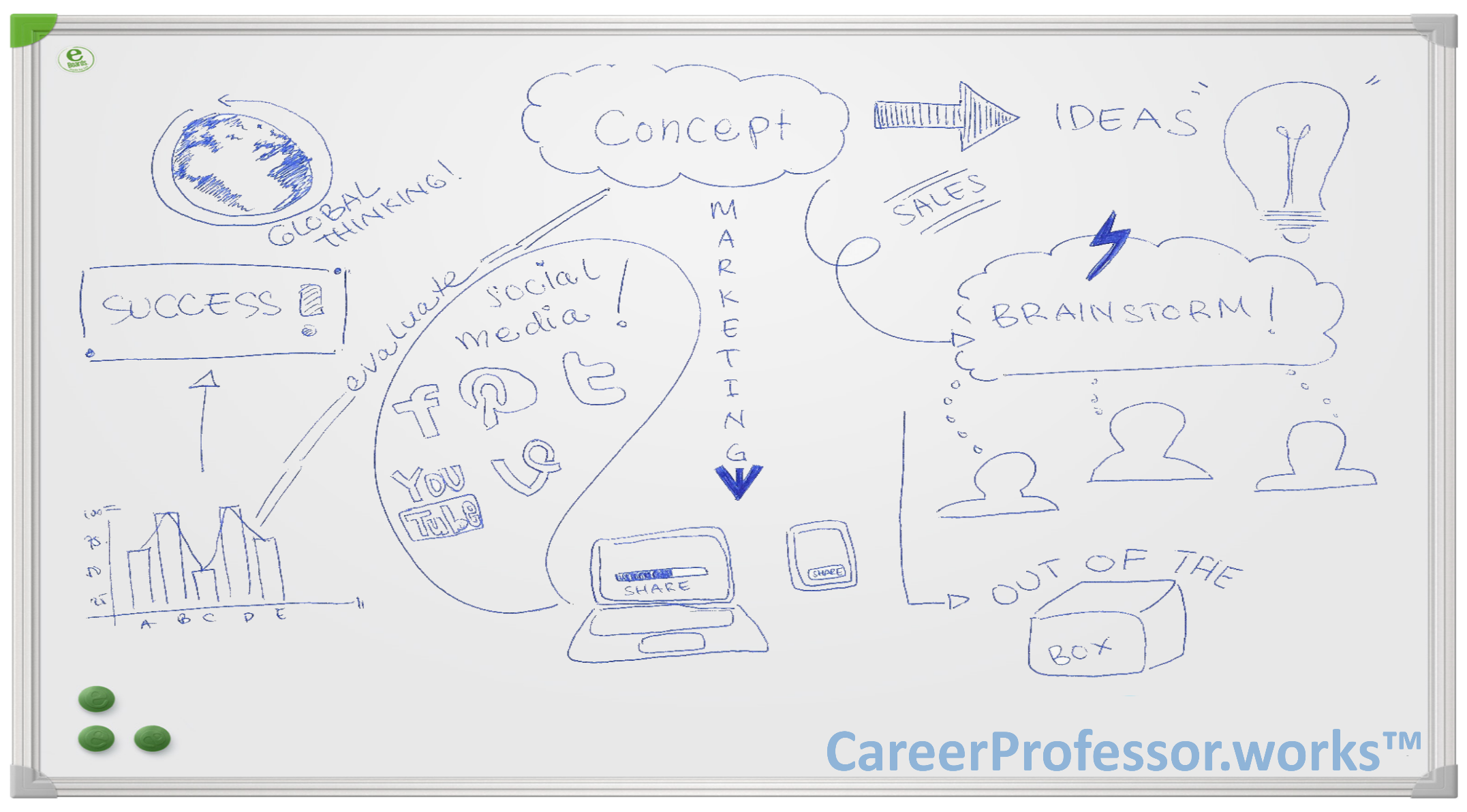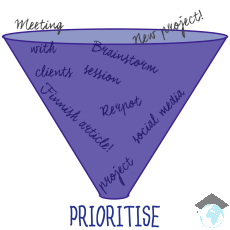
Top 10 Skills for the Future
Graduation season is just around the corner, in only a few months a wave of young degree-holders will leave their Alma Maters and embark on a journey in search of a perfect job. If you are one of those graduates busy making mental maps of all your marketable skills for today’s job market, take notice: rapid technological advancements and innovations will sooner or later transform organisations, business landscapes and career tracks as we know them. So much so that in 2011 a team of researchers conducted a study trying to identify what skills would be an absolute must-have for an employee in 2020. Take a look and see if you have what it takes to succeed in the future and what skills you need for the future (otherwise you still have 5 years to work on it).
Top-10 List of Skills for 2020 include:
[two_third]
1. Sense-Making or the skill of critical thinking.
Why it is important: With progressing advancement of current technologies, certain routine jobs and functions can (and most probably would) be outsourced for machines to perform. To stay in demand, people need to offer something that even the most advanced machines cannot – ability to think and critically examine the environment from all angles to arrive at a solution.
[/two_third]
[one_third_last]

[/one_third_last]
2. Social Intelligence or ability to effectively engage with people.
Why it is important: just as in the example above, social intelligence is something that only humans possess, which gives them an advantage over technology. This skill allows people to quickly scan emotions of others and adapt their behaviour and actions in turn. It is especially relevant when building trust and collaboration within a team or when the job requires establishing a relationship with a client.
[one_half]

[/one_half]
[one_half_last]
3. Novel and Adaptive Thinking or ability to come up with out-of-the-box ideas.
Why it is important: job opportunities in low-skill occupations will deteriorate, while an ability to come up with a new product or create an original piece of work will be in demand like no before. This “situational adaptability” – responding to changes in your environment and using it as an opportunity – will definitely set you apart and give a competitive edge.
[/one_half_last]
4. Cross-Cultural Competency or ability to operate in different cultural settings.
Why it is important: while understanding and managing cross-cultural teams is already a big part of today’s organisational life, with expanding globalization, diversity at a workplace will become even more evident. Being able to successfully navigate between cultural pitfalls, manage differences and establish working communication lines between colleagues from different backgrounds would definitely set successful employees apart from the crowd.
[one_half]
5. Computational Thinking or ability to work with large data sets.
Why it is important: Days when recruiters would be satisfied with a resume listing Microsoft Office suit as primary IT skill will soon be over. Employers would be far more interested in your knowledge of programming, statistical analysis and how good your quantitative-reasoning skills are.
[/one_half]
[one_half_last]

[/one_half_last]
6. New Media Literacy or ability to create content using new media channels.
Why it is important: Social Media is already a major part of our daily life and will become even more visible in upcoming years. Mastering the art of creating interactive visual content that captures attention (including use of editing software tools) will increase your chances of getting ahead in your career.
[one_half]

[/one_half]
[one_half_last]7. Transdisciplinarity or ability to understand concepts across multiple disciplines and subjects.
Why it is important: Specialized education and career paths will soon give way to a multidisciplinary approach. Ideal worker would be “T-shaped”, meaning that he or she has a deep understanding in at least one field, but has enough curiosity and motivation for continuous learning and gaining expertise in other subjects, too.
[/one_half_last]
8. Design Mind-set or ability to adapt work environment towards desired outcome.
Why it is important: research suggests that certain changes in work environment can affect the way an employee feels and approaches his or her assignments. For instance, if you need your team to work on a creative project, working in a place with high ceilings is found to stimulate imagination. Knowledge and understanding of how these changes in work environment affect people can be extremely useful in reaching specific goals.
[one_half]
9. Cognitive Load Management or ability to filter and prioritise incoming information.
Why it is important: Big Data successfully entered our lives and we are being constantly subjected to an influx of information in all shapes and forms. To avoid completely overloading your mental capacity with unnecessary data “noise”, employees would need to train their skill in “filtering” and prioritising which information is useful for them and which is not. [/one_half]
[one_half_last]

[/one_half_last]
10. Virtual Collaboration or ability to communicate and perform in a virtual team.
Why it is important: Being a good team-player in a traditional team does not automatically make you a good team player in a virtual one. Physical isolation from other members can become a problem for keeping the productivity levels high, so skills in motivating and engaging virtual communities can prove extremely useful for future team leaders.
by Eleonora Drokina
The CareerProfessor.works Team
© Expertise in Labour Mobility B.V. All rights reserved.
